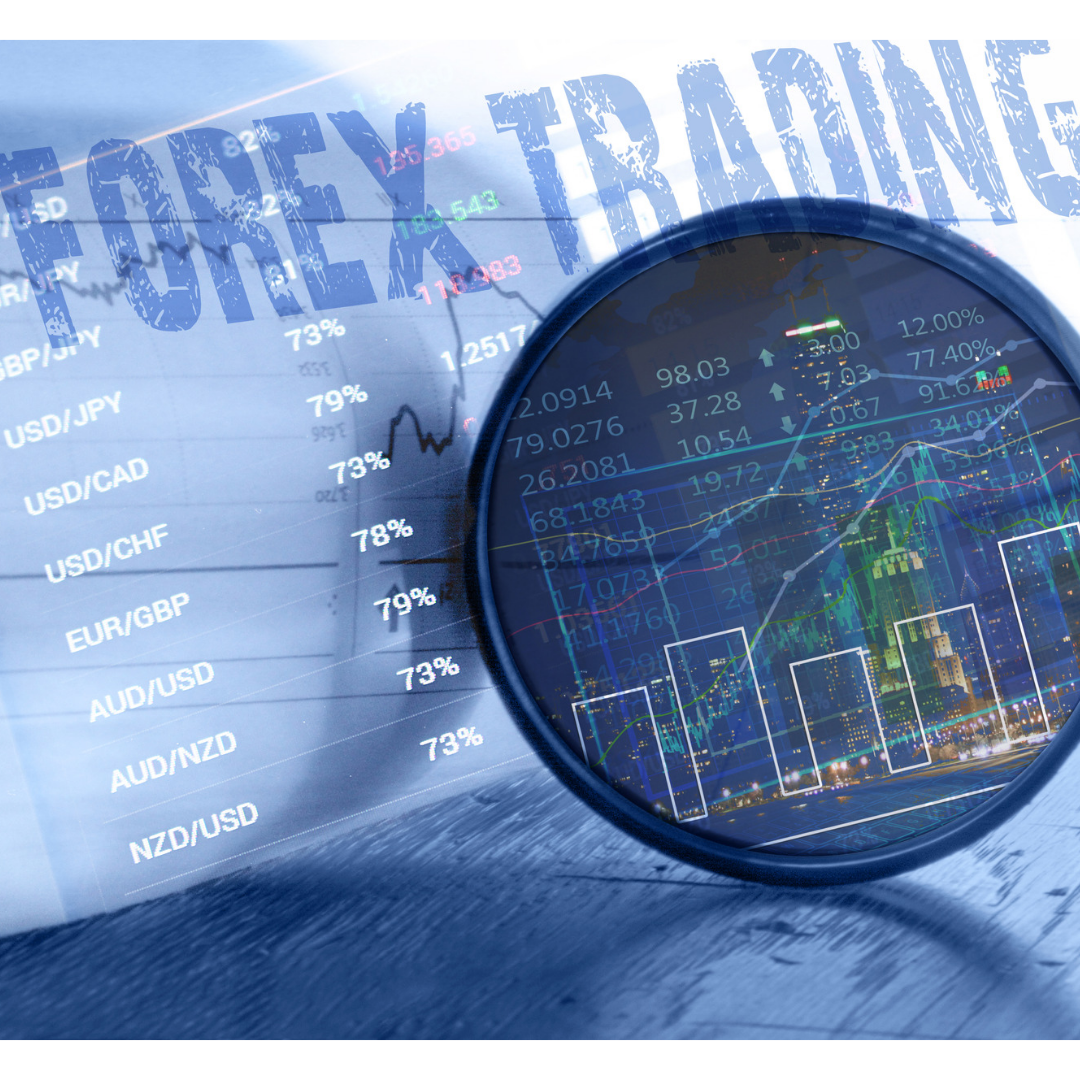Charles has chosen to invest in a business that helps people convert their local currency into other currencies, and he lost half of his invested money in just a month. Is that not huge?
Charles is a typical Nigerian guy with a desire to chase the bag. He eagerly started this business and closed his former business of selling foodstuffs.
Now, you may wonder, “how do foodstuffs and financial exchange relate?” If you ask me, they don’t.
But if you think that lack of prior proper knowledge of the financial market made Charles lose that much, Yes, you are on point.
Charles could have learned the guide to the financial market before starting, and he would not have gone through that.
Nevertheless, to avoid ending up like Charles when you want to venture into Forex trading like you are now, reading this beginner’s guide to forex trading in Nigeria is a good start.
In this article, you will learn the fundamentals of forex trading in Nigeria, how to start forex trading in Nigeria, and other relevant knowledge that gives you an edge as a beginner. Let’s get started!
Table of Contents
Fundamentals of Forex Trading
Forex trading was considered suitable for large conglomerates, financial institutions, and other larger entities during the early nineteenth century, particularly in Nigeria.
However, as technology advances, forex trading has become something that welcomes and enables anybody and everyone from all over the globe, making it a more accessible, part-time or full-time activity.
The forex market is part of the world’s major financial marketplaces, and this is no different in Nigeria, where billions of Naira are exchanged daily between thousands of Nigerians.
Forex trading in Nigeria takes place over-the-counter, or OTC, on thousands of networks worldwide between buyers and sellers of currencies.
The Forex Market is where these currencies are exchanged, with daily transactions totaling roughly $5 trillion, yes, that much!
Because of the large number of players continually trading currencies, the forex market is the most volatile and liquid.
The market is open 24 hours a day and five days a week, and trading may occur anywhere, from anywhere, despite various time zones.
What is Forex Trading?
Forex is a virtual market in which banks, multinational organizations, huge brokers, and holding companies continuously purchase and sell currencies, precious metals, securities, and other commodities.
Based on sheer exchange transaction volume, the following currencies are the most commonly exchanged in Nigeria: the US Dollar (USD), the Euro (EUR), the British Pound (GBP), the Ghanaian Cedi (GHS), the Canadian Dollar (CAD), and the South African Rand (ZAR), though all currencies are classified as either Major, Minor, or Exotic.
Basic Forex Trading Terminologies
The following are the fundamental definitions of key phrases used in Forex trading:
Pip: the smallest increment by which the exchange rate may go up or down. Going long entails purchasing while going short entails selling.
The currency pair: It consists of two currencies, the first of which is the base currency and the second of which is the counter-currency or quoted currency.
Exchange rate: The cost of the base currency stated in terms of the quoted, or counter, currency.
The spread: It refers to the difference between the bid and ask prices, and it represents the transaction fee for the deal, which is always expressed in pips.
Bid and Ask Prices: The bid price is the stated price at which buyers of the currency pair are willing to purchase it, while the asking price is the price at which sellers are prepared to sell it.
Margin: It is the amount set aside by the broker as collateral for a leveraged deal.
Leverage: A technique traders may use to build bigger positions despite small initial deposits; it is often represented as a ratio, such as 1:100.
A leverage of 1:100 enables the trader to open trades worth a hundred times the original investment.
Lot Size: This is the amount of the trader’s position on the market, which determines the size of gains and losses.
How to start Forex Trading in Nigeria.
-
Make a trading strategy
Now that you understand the fundamental terminologies used in forex trading, you must create a strategy to guide your trade.
There are various variables to consider to create a very good trading plan that fits your strategy;
- Your financial status and trading goals. You must assess your financial situation to decide how much money you have to put into trading and how much you can afford to lose.
- Assess your risk profile, risk exposure, desire to be exposed to risk, and the amount you can afford to be exposed to.
- Your degree of experience, abilities, and understanding of forex trading in Nigeria, which is often at the beginner’s level, to decide what education you will need to improve on, as well as the time you can devote to trading, whether full-time or part-time.
- Keep a trading notebook to document your trading activity so that errors and techniques that resulted in gains and losses may be highlighted.
The goal is to enhance your trading techniques and trading judgments over time.
-
Select the best broker
Several brokers cater to a wide range of traders based on trading styles, requirements, and other considerations.
The most significant element to consider while deciding is whether your broker is regulated by Nigeria or another recognized nation.
Regulation is vital because it protects customers or traders while also fostering confidence between traders and brokers.
Most traders cannot go through individual deals or investments, and regulation helps to protect customers’ assets from being stolen.
It would help if you also kept an eye out for the various commission levels each broker gives and the prospect of generating passive money.
FXTM, Exness, IC Markets, OctaFX, HotForex, OANDA, NovaFx, and many more are popular brokers in Nigeria.
Join our WhatsApp community to connect with other forex traders and be a part of insightful conversations.
-
Evaluate trading platforms
Brokers support trade execution by providing trading platforms that are either offered by third parties or given by the broker itself in the form of a proprietary in-house trading platform.
As a novice, you’ll want to choose a trading platform that’s easy to use and has a simple interface while offering comprehensive trading tools and quick trade execution.
Many novices begin using MetaQuotes’ MetaTrader suite, which includes MT4 and MT5, which are easy enough for beginners to start trading but also have many indicators, technical tools, and rapid trade execution.
Read also: 10 Facts to know about Cryptocurrency in Nigeria.
-
Choose a trading strategy
Trading operations must be undertaken appropriately and chaotically since this will result in consistency and uncontrolled trading, which may result in significant losses.
Instead of switching between tactics, You must choose a trading strategy and spend time learning it from the ground up, ultimately changing it by utilizing technical indicators and other tools to meet their demands even more effectively.
Examples of common trading tactics include scalping, day trading, swing trading, positional trading, and many more.
In Summary
It may be terrifying for Nigerian traders who have never seen a market as large, complex, and liquid as the forex market.
However, with the wide and thorough instructional resources, manuals, tutorials, videos, and other materials accessible on the internet and given by brokers, novice Nigerians such as yourself may be well on their way to generating large gains via forex trading.
You should follow the guide from this post as a beginner Nigerian trader since it will guarantee a firm foundation and assist you on your road to becoming a more expert trader.
Forex Trading in Nigeria is a talent that must be learned, modified, and refined through time. Good luck and happy trading!
Subscribe to our newsletter for more informative and enlightening posts.
About Author
- Emmanuel Odebiyi is a seasoned content writer who specializes in writing valuable and engaging content in the technology, career, freelancing, finance, and lifestyle niches. He also writes sales copies that turn visitors into returning customers.
Latest entries
 OpinionSeptember 7, 2023Nigerian Proverbs and Wisdom: Lessons for Modern Living
OpinionSeptember 7, 2023Nigerian Proverbs and Wisdom: Lessons for Modern Living EntrepreneurJune 5, 2023How to Edit a Video with video editing software in 2023
EntrepreneurJune 5, 2023How to Edit a Video with video editing software in 2023  TechnologyFebruary 4, 2023How to Track a Stolen Phone in Nigeria (For Android Users)
TechnologyFebruary 4, 2023How to Track a Stolen Phone in Nigeria (For Android Users) TechnologyJanuary 23, 2023A Simple Guide on How to Format Laptop Windows 10
TechnologyJanuary 23, 2023A Simple Guide on How to Format Laptop Windows 10

